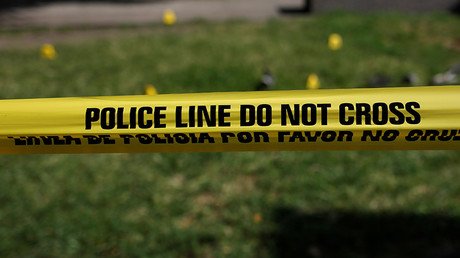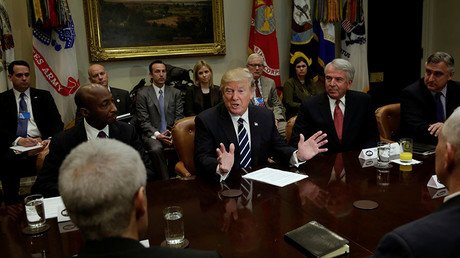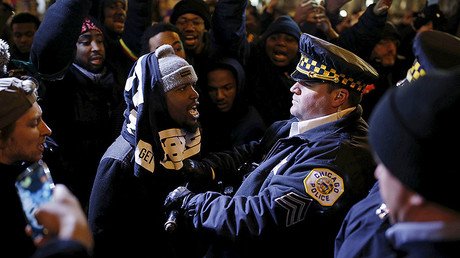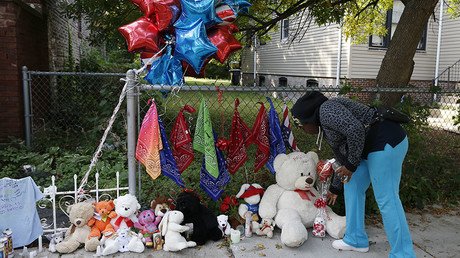DOJ to stop going after ‘unfairly maligned’ police – AG Sessions
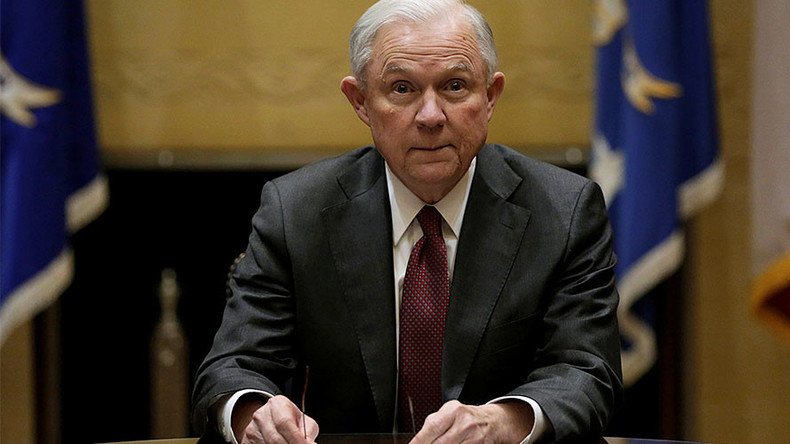
The Justice Department should allocate more money to help police fight crime rather than spend scarce resources on lawsuits against police departments, Attorney General Jeff Sessions said. The DOJ has found much abuse within US policing in recent years.
Speaking before the National Association of Attorneys General winter meeting in Washington, DC, Sessions said his Department of Justice (DOJ) will include a task force that will analyze policing practices in the US in order to fight crime.
The Task Force on Crime Reduction and Public Safety will employ the heads of major federal law enforcement agencies to "look at deficiencies in our current laws that have made them less effective in reducing crime, and propose new legislation."
Part of the revamped DOJ mission will include reversing the suffering morale of law enforcement, which, "as a whole has been unfairly maligned and blamed for the unacceptable deeds of a few bad actors," Sessions said.
After calling DOJ Chicago, Ferguson reports "anecdotal," "not scientific," Sessions concedes HE NEVER READ THEM. https://t.co/HknculJY0o?
— Radley Balko (@radleybalko) February 28, 2017
"[R]ather than dictating to local police how to do their jobs – or spending scarce federal resources to sue them in court – we should use our money, research and expertise to help them figure out what is happening and determine the best ways to fight crime," the attorney general said.
According to the DOJ's website, at least 29 law enforcement agencies in the US and its territories have been the subject of a DOJ investigation in recent years. Those investigations encompass a vast range of misdeeds and abusive practices by the likes of the Baltimore and Cleveland police departments, among many others.
Jeff Sessions tells state AGs: people who are here unlawfully who commit crimes are going to be "outta here." 1st speech as leader of DOJ.
— Carrie Johnson (@johnson_carrie) February 28, 2017
In January, the DOJ said that the Chicago Police Department engaged in a systematic pattern civil rights violations and wanton use of deadly force in violation of the Fourth Amendment of the US Constitution.
In 2015, the DOJ found routine constitutional violations by the Ferguson (Mo.) Police Department that severely impacted a "community where deep distrust and hostility often characterized interactions between police and area residents."
On Monday, Sessions said he has not decided how the DOJ will handle the Chicago probe, nor has he even read DOJ investigative reports on the Chicago Police Department and other police departments.
"I have not read those reports, frankly. We’ve had summaries of them, and some of it was pretty anecdotal, and not so scientifically based," Sessions said, according to the Huffington Post.
Repeating a familiar theme among Donald Trump administration officials, Sessions said there is a "disturbing rise in violent crime in our nation." Crime statistics for 2015, the latest year with complete data, showed a 3.9 percent increase from the previous year, according to the FBI.
Yet, violent crime is down about half since the early 1990s and sits at a level not seen since the 1970s. The rise in 2015 came after two decades of decreases. Sessions acknowledged this "context" of decreasing rates of violent crime in the long-term. Nevertheless, he warned the recent increase cannot yet be written off as a "one-year spike."
"These numbers should trouble all of us," Sessions said in reference to upticks in murder rates of major US cities. "My worry is that this is not a 'blip' or an anomaly, but the start of a dangerous new trend that could reverse the hard-won gains of the past four decades – gains that made America a safer and more prosperous place."
Referencing America's "heroin epidemic," Sessions first blamed Mexican drug cartels and "illegal drugs [that] flood across our southern border." Heroin overdose deaths, for example, have quadrupled in the last five years, the federal government said last week. Experts on heroin use in the US point out that the drug's skyrocketing popularity has been fueled by common availability of, and subsequent crackdown on, prescription drugs.
Increasing federal drug and gun prosecutions will be a priority for his DOJ after declining trends for both classes of crime, Sessions said.
He also claimed that law enforcement officers "are becoming more cautious" amid criticism of policing practices in "this age of viral videos and targeted killings of police."
"Our officers, deputies and troopers believe the political leadership of this country abandoned them," Sessions said. "Their morale has suffered."
